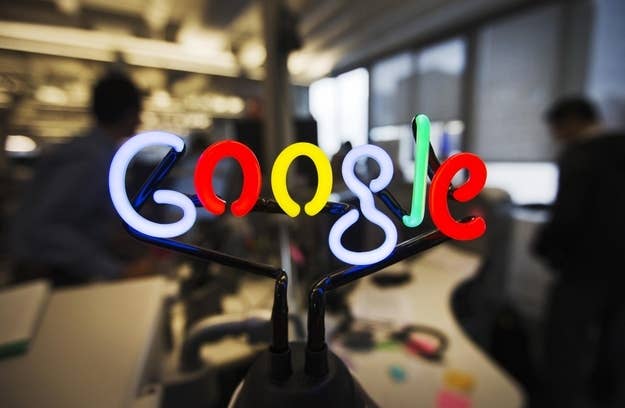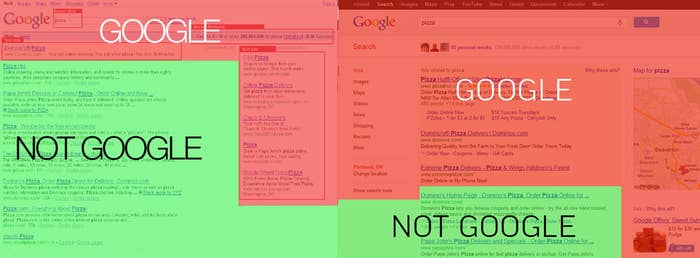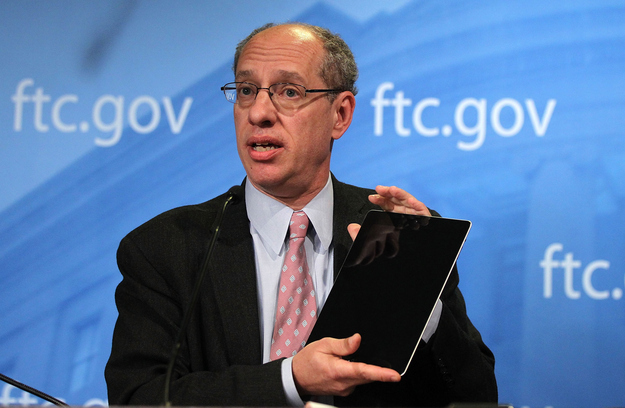
The Federal Trade Commission spent the last 19 months investigating Google's business practices for antitrust violations, looking into everything from its use of patents to its ads practices to Google's search business. And the agreement concluding the investigation is wide-ranging, with Google largely coming out on top.

At the core of the case was the fact that what a search results page looks like on Google has mutated over the last few years, delivering less and less stuff from the web outside of Google, and showing more and more of Google's own content and data — starting with Universal Search in 2007 and leading up to its introduction of Knowledge Graph results this year. This search for pizza in 2008 vs. today is a particularly dramatic example, but serves the point: Google has shifted from a search engine to a knowledge engine, and increasingly it wants to deliver that knowledge itself, rather than send you away. The idea, as explained in this profile of Google CEO Larry Page, is to build a knowledge engine that "would always understand what you mean. It would know you and would deliver results tailored to your interests. And it would give you answers to things that matter to you — even when you didn't ask."
So the FTC's investigation into whether or not Google's been engaged in "search bias" — and ultimately anti-competitive behavior — might have been the most important aspect of its investigation from a consumer standpoint, since it could've redefined what search — something practically all of us do everyday — looks like. The result:
The totality of the evidence indicates that, in the main, Google adopted the design changes that the Commission investigated to improve the quality of its search results, and that any negative impact on actual or potential competitors was incidental to that purpose. While some of Google’s rivals may have lost sales due to an improvement in Google’s product, these types of adverse effects on particular competitors from vigorous rivalry are a common byproduct of “competition on the merits” and the competitive process that the law encourages.

The FTC's evidence comes from "over nine million pages of documents from Google and other relevant parties," interviews with "numerous industry participants," "many investigational hearings of key Google executives," and "empirical analyses to investigate the impact of Google’s design changes on search engine traffic and user click-through behavior." It led the FTC to conclude that Google's "primary goal in introducing this content was to quickly answer, and better satisfy, its users’ search queries by providing directly relevant information."
And if you're unhappy about that result, or find it ludicrous that the FTC thinks this new, even Googlier Google is better, blame the way everybody else Googles stuff. The FTC cites "analyses of 'click through' data showing how consumers reacted to the proprietary content displayed by Google also suggest that users benefited from these changes to Google’s search results."
In other words, this new Google that heard you liked Google so it put some more Google in your Google results is very much here to stay, even if it does have some "adverse effects" on competitors. And, one would expect, will continue to expand, particularly along the vector of Google+, which, as the Wall Street Journal ominously states in a headline about the social network's forced pervasiveness across Google, "There's No Avoiding Google+."
Largely, it turns out, because there's no avoiding Google.
